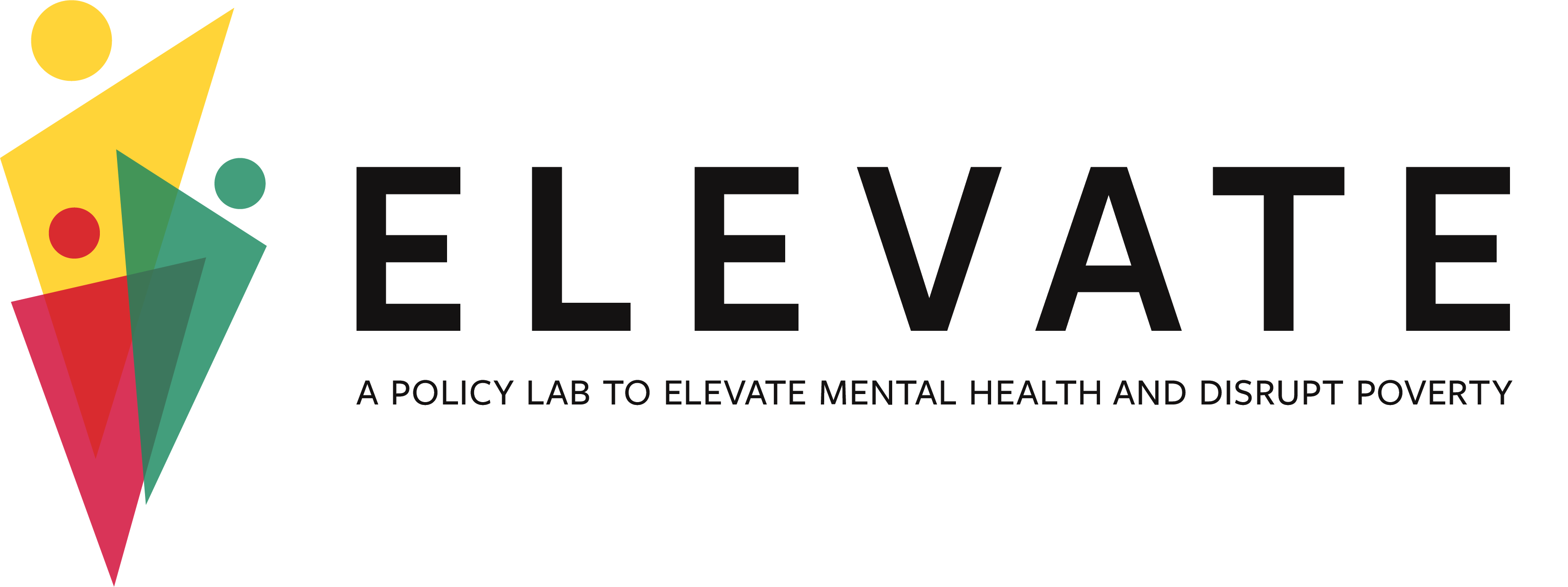Anyone who has ever flown on a commercial plane is familiar with the standard safety demonstration before take-off.
A flight attendant or a video shows how to use the seat belt, emergency exits, and the life vest. When it comes to the oxygen mask, passengers traveling with children are told to secure their own masks first before assisting a child. This instruction makes perfect sense: You can’t help someone else until you have first helped yourself.
The same is true about mental health and poverty.
The more we can learn and share with our partners, the more we can help.
Dr. Megan Smith
About 40 million Americans live in poverty, including one in every five children. Poorer children are at higher risk for a wide range of negative outcomes, including developmental delays and dropping out of school. Often, parents are not in the best position to provide their children with the help they need. More than 46 million American adults have experienced a mental illness within the past year, including the mothers of 55 percent of children living in poverty.
Research demonstrates these problems are linked and often lead to additional, complicating health problems. Altogether, the negative consequences of poverty and mental illness can follow children over the course of their lives and get passed on to their own children. There must be a better way forward. And now, there is.
Introducing Elevate
Elevate is a new policy laboratory designed to apply science in the creation and spread of evidence-based interventions for socially and economically disadvantaged families in partnership with government agencies.
Elevate and Women’s Health Research at Yale will collaborate to generate the science necessary to break the cycle of poverty.
“Breaking the cycle of poverty is difficult, but we know that when we can improve the mental health of parents, children do better at school, in their emotional connections, and in their general ability to function that they then carry into adulthood,” said Dr. Megan Smith, Associate Professor of Psychiatry and in the Child Study Center and founder and Director of the Mental health Outreach for MotherS (MOMS) Partnership. “And when children do better, so do their parents — psychologically and economically.”
Elevate will develop a new approach to tackling poverty bolstered by careful research. We already know, for example, that the chronic stress often experienced by people in poverty can increase the risks of developing major depression. We also know that women are twice as likely to develop major depression than men, and that chronic stress in children predicts a greater likelihood of a child developing depression as well as health problems such as heart disease, diabetes, and obesity later in life.
Elevate and WHRY will seek to understand the biological and psychological mechanisms that drive these dynamics. Once we understand the causes and effects, then we can design effective interventions to reduce those causes, minimize the effects, improve lives, and help end the cycle of poverty.
In addition, by linking policy initiatives to outcomes supported by data, this new endeavor will build convincing cost-effective cases to cultivate and expand fruitful partnerships with government agencies and community service organizations to help families across the country.
“At Elevate we argue that programs that bond and intertwine mental health elements with social services will improve the effectiveness of existing programs by simultaneously boosting mental health outcomes for parents and children and subsequent earnings for parents,” Smith said. “We do this while bridging together separate theories and bodies of evidence, such as developmental science and workforce development. The more we can learn and share with our partners, the more we can help.”
The program will build upon the successes of MOMS, which has produced rigorous evaluations showing that 76 percent of mothers participating in its programs experience a decrease in depressive symptoms and a 67 percent decrease in parenting stress. Consequently, their children attend an annual average of six more days in school compared to children of non-participants, and part-time employment of mothers nearly doubles.
“Empirical data tell us that women largely take charge of health care decisions in the home,” said Dr. Carolyn M. Mazure, Director of WHRY. “If we can reach women in need and provide interventions proven to improve their families’ lives, we can interrupt the cycle of poverty to help women now while fulfilling our obligations to younger generations.”
Speaking at an event to launch the lab in May, Elevate Executive Director Katherine Gaztambide said that mental health is not just a health issue, but also an issue that affects housing, education, jobs, and wages.
“Mental health is a poverty issue,” Gaztambide said. “Elevate presents an opportunity to improve mental health, stabilize the rocky waters in families’ lives, and work with families so they can take advantage of the opportunities we all deserve.”
The event featured talks from Drs. Smith and Mazure and many of the policy lab’s partners, including national organizations and governmental agency representatives from Vermont, Kentucky, and Washington, D.C. Elevate will serve as a hub, working with government partners to align policies and funding streams to provide needed services at locations that are accessible and where parents are comfortable. Examples include supermarkets, public libraries, and laundromats.
At the launch event, Chelsea Clinton, Vice Chair of the Clinton Foundation, participated in a discussion with Smith moderated by Dr. Kelvin Chan, Director of The Robin Hood Foundation’s Fund for Early Learning (FUEL). There, she and the MOMs Partnership announced a new collaboration to team up with Too Small to Fail, an early childhood education initiative of the Clinton Foundation, to integrate services promoting maternal mental health and children’s early literacy development.
“When mothers have less depression or anxiety, they have more energy, capacity, and time to engage with their children,” Clinton said. “And if they have that time, they use that time. To read with their kids, to talk with their kids, to sing with their kids, to hold their kids, to establish those connections that are so hugely important to children’s health and also to the mother’s own mental health and well-being.”
As Elevate takes off, mothers and children can expect a smoother ride and a softer landing away from the turbulence of poverty.


